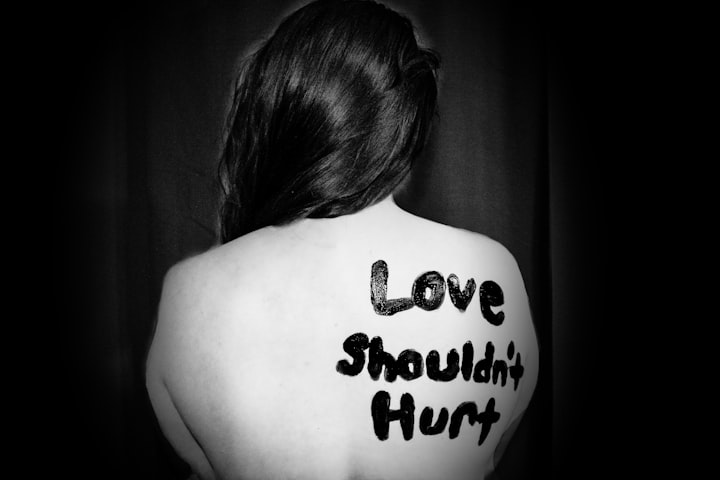The Rules
This was a final for my English class, which earned me my first 100% on a non-research-based essay. It describes my desperation to be normal and how I have been too successful.
My mom says that it is a universal experience to be lonely, awkward, anxious, unaware. That I was not the only fifteen-year-old uncomfortable in her skin.
My skin is not the only thing I am uncomfortable in. The problem is my brain, confined by self-made rules in attempts to fit in with the rest of my peers.
This is the easiest way to describe the unfamiliarity of living in society. I have had nineteen years to try and integrate into society, but every now and then, the truth slips through.
The rule is to fit in, to be different enough to be interesting, but bland enough to not be odd.
Slowly. Slowly. Slowly, I am allowing myself to unmask, giving up my one talent to hopefully find myself. I am so, so good at masking.
I realize now how exhausting this has been, to be the exact same person as everyone else, watching my words and expressions and tone. Cataloging their every signal, to copy or to look up when I get home so I can be better prepared for my next meeting with that specific nonverbal communication.
This is how no one knows. I am good at this. I have taught myself nonverbal communication.
I have spent years explaining my experiences to my mom, begging her to understand that I did not mean to be rude, that I did not mean to hurt my sisters’ feelings, that I do not understand why my routine is weird.
But the rule is to not complain, to not say something weird.
I have been told it is weird that I turn socks inside out because the seam is so irritating that it makes my skin crawl. That it is weird for someone else’s chewing to cause me pain. I am weird for cutting the tags off my shirts. I am weird for scrubbing my skin raw.
So, I do not say when I feel anything.
And I am so good at hiding.
When I explained scripting, she finally understood. She finally understood that something is different about me, and it is not the type of different that every mom tells their daughter is fine and normal.
“I know it does not seem like it, but everyone goes through this,” is the mantra of my early teenage years as my mother attempts to give me some sort of comfort.
But I do not believe this, because if everyone is exactly like me, then this world would be a more understanding place. Communication would be more forgiving. Instead, I have had to teach myself how to speak to be accepted.
After an almost traumatic two weeks working in a physical therapy clinic, I realized I needed more practice speaking. This was a different population than what I had always practiced for. People in pain can be hard to talk to.
I stood in my room, prepping myself for everything a patient could say, so I could always seem natural, as though I did not have to think of an answer. I learned when it is appropriate to ask about summer plans or holiday plans or the weekend or the weather.
But the mirror often makes better conversation.
I hated when patients did not want to answer, when they wanted to do the asking. But it was worse when they said something unexpected. I had not practiced conversation about politics. Or religion. Or what to respond when they say they hate the perfect mild weather.
So, I practiced those, Googling professional responses to unprofessional patients.
“Oh, I don’t really keep up with politics right now. Been too busy with homework and whatnot,” I said to the older gentleman who had been pointing out the racist slogan on his shirt, telling me about the rally he went to last week.
“Ah, are you more of a hot-weather person, then? Or cold weather?” I asked the well-dressed woman with a wrist splint and hot-pink acrylic nails.
“Oh wow, I haven’t heard of that. I’ll look into it later,” I remarked, wrapping ice around someone’s grandmother’s shoulder. She said vaccines cause autism and heart problems.
But people are not always that predictable. Conversations shift too fast for me to be prepared for all topics.
School is hardest, especially when the group is listening to only my voice.
“Oh jeez,” my mom had said, sitting at the old barstools from my grandmother’s house, her forearms resting on the island. “I did not know you did that.”
She wanted to know why my participation grade was not perfect. I hate lying, so I told her. I practice my every response until I am as comfortable as I can be before responding.
“I knew she did,” my younger sister defends. She does know, the only person I trust with such deep, dark truths.
She knows I practiced talking to patients, coworkers, family, friends, so I know how to fix the awkward silence.
She knows that I am not depressed. She knows that I am listening, just too tired to smile and nod and look her in the eye. And she knows that I am good at listening, but only my version, where eye contact and feedback are not required.
She knows I plan out everything I say before I say it. She knows that my participation grades can suck because by the time I finish planning my speech, the topic has passed. It is too late to share what I had just spent the last 3 and a half minutes agonizing over, memorizing, and scripting.
I am so good at scripting, when I have enough time.
“I know we don’t have the report back, but I just cannot believe it. You don’t fit the stereotype I have of autism, which I know is bad. I am not supposed to stereotype.” My mom has both hands on the steering wheel, not looking at me. The psychologist had told my mom that we needed to wait for the full report for specifics, but that I definitely have ASD.
I have told my mom not to stereotype, ever. I try to be understanding. She had a different upbringing.
But the rule is to not stereotype.
Instead of repeating the lesson on stereotypes, I tell her that I do not blame her for not knowing, or not being able to wrap her mind around it. “Afterall,” I say, trying to make her laugh to break tension, “Your normal is Dad.”
The joke is that my dad and I probably have the same diagnosis, but my dad blames his quirky behavior on his engineering career.
My quirky behavior was blamed on being a sensitive girl. An anxious girl. An odd duck. I worked hard to be seen differently than that odd child I used to be. I seem normal.
My mom sighs at my poor attempt at a joke. Not the reaction I was hoping for, but at least it is a reaction. I understand my mother’s sighs. She is easy to read, surprisingly. But I have had practice.
"I guess that’s it, huh? I am so used to him that it seems normal?” She asks. I do not reply.
I do not know the rules for communication, in full.
Am I supposed to reply to her question?
Was I supposed to lie and say the dress looks nice?
Is it weird if I don’t voice any agreement?
Did I just interrupt?
Did I just take that too literally? Damn it, they are going to figure everything out.
Am I supposed to talk about myself now?
How many lies are fine, to save someone’s feelings? I do not like lying.
Am I supposed to smile the whole time she tells this story? It has already been twenty minutes and now my cheeks hurt.
I do not know all the rules, but I know many. And I am so good at the rules I know.
When someone asks about your day, you answer quickly, generically, and concisely. Then you ask them about their day. If they stop talking, comment on the weather, or something interesting they mentioned in their day, or if they have any plans for the weekend.
Ask them questions. And then more questions. When they try and turn the conversation back on you, be as “short and sweet” as possible. Then ask them if they have any plans for the summer. Never talk for too long. Vary your expressions.
The rule is to smile.
But never strangely. Not a grimace. Crinkle your eyes a bit, keep your lips closed.
But only usually. Sometimes teeth need to be out. Sometimes a grimace is right. Sometimes it is weird to smile.
And dear God, look them in the eyes. It does not matter how hard it is.
But there is the fine print that enforces even more rules. Never forget to blink. And to vary eye contact. Never stare.
A rule is easy. Rules are fun. They make sense. I am good at this.
It is the rules that change that are hard. And they all change.
It is not appropriate to smile the whole conversation. It is not appropriate to make eye contact the whole time. It is not appropriate to lie, but do not hurt their feelings.
I am not as good at this as I thought.







Comments
There are no comments for this story
Be the first to respond and start the conversation.